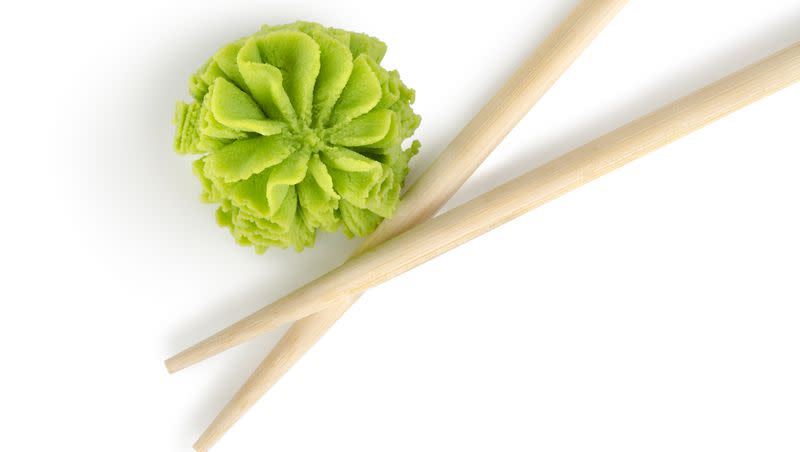A dab of wasabi on your sushi can boost memory, study says

Do you avoid that pasty green stuff that spices up your sushi? Well, a new Japanese study suggests a dab of wasabi on your raw fish and seaweed can boost your memory.
The Tohoku University study published in the journal Nutrients found the condiment improves both short- and long-term memory.
Lead researcher Rui Nouchi, an associate professor at the university’s Institute of Development, Aging and Cancer, said though based on a small number of healthy volunteers, the results exceeded researchers’ expectations.
“We knew from earlier animal studies that wasabi conferred health benefits,” Nouchi told CBS News. “But what really surprised us was the dramatic change. The improvement was really substantial.”
Related
How much did wasabi improve memory?
The active ingredient in wasabi is a biochemical compound called 6-MSITC, a known antioxidant and anti-inflammatory known to exist in only trace amounts elsewhere throughout the plant kingdom, Nouchi said.
In the double-blind study, 72 healthy volunteers between the ages of 60 and 80 were split into two groups. One group took 100 milligrams of wasabi extract at bedtime, while the rest took a placebo.
After three months, the wasabi group saw “significant” boosts in long- and short-term memory, based on standardized assessments for language skills, concentration and ability to carry out simple tasks.
Those who took the wasabi extract saw their episodic memory scores jump an average of 18%, Nouchi said, and scored on average 14% higher than the placebo group overall, per CBS News.
Related
What is wasabi?
Per CBS News, “Wasabi is a member of the mustard family of plants. The fiery condiment paste made with it became prized in Japan centuries ago for its antimicrobial properties, which make it capable of killing off foodborne pathogens such as E-coli and staphylococcus, while its flavor and aroma complemented seafood.”
Native to Japan, wasabi is difficult to cultivate. The plant takes nearly two years to reach maturity and requires exacting temperature, shade, gravel and water conditions. It can cost more per pound than even the tuna it sits on.
But, CBS News reports, the wasabi served in sushi bars is often not real — usually made of ordinary white horseradish, dyed green.
Genuine wasabi must be consumed fresh, with the stubbly rhizome, or stem of the plant, grated tableside just before eating. Just a small dab matches the benefits in the capsule supplements used in the Tohoku study, or 0.8 milligrams of 6-MSITC.
Wasabi maker Kinjirushi Co. funded the study, but researchers said the company had no role in the study itself.

